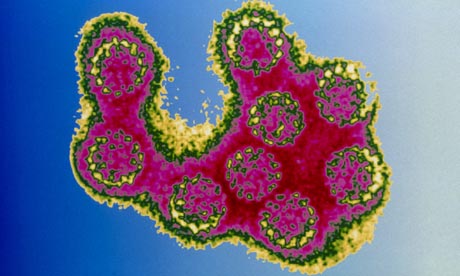
Cancer used to be thought one of those diseases that you couldn't get from anyone else. If you got it, it was the fault of your genes. But as time has gone on, it has become obvious that lifestyle is at least as big a factor, and that alongside drinking, smoking and eating too much, which can all be implicated, the viruses that we pass from one to another can raise our risk.
Transmission of cancer from mother to child is incredibly rare and has now been shown to have genetic triggers. The baby's immune system should have blocked the cancer, but it did not recognise the enemy. As far as we know, there was nothing in the mother's lifestyle that made cancer more likely.
But usually cancer is a combination of genetic propensity and environmental circumstances. Risk factors for many cancers include obesity. Cervical cancer is caused by a virus – the human papillomavirus (HPV), for which we now have a vaccine. HPV is sexually transmitted. But most women come into contact with it at some point in their lives and most women clear it from their bodies without knowing it. Only in a very small proportion of cases does it cause cancer.
Viruses may well trigger other cancers. There are theories around leukaemia and childhood infections. But Mel Greaves of the Institute of Cancer Research, who led the present study, earlier showed through analysing heel-prick blood from newborns that many already have cell damage that can lead to cancer. Cancer cannot be caught like a cold. The most positive message of the new study is that it affects some people whose immune systems are not working as well as they should. That could lead to treatments to boost the immune systems of people who are known to be at genetic risk or who have already had cancer.

